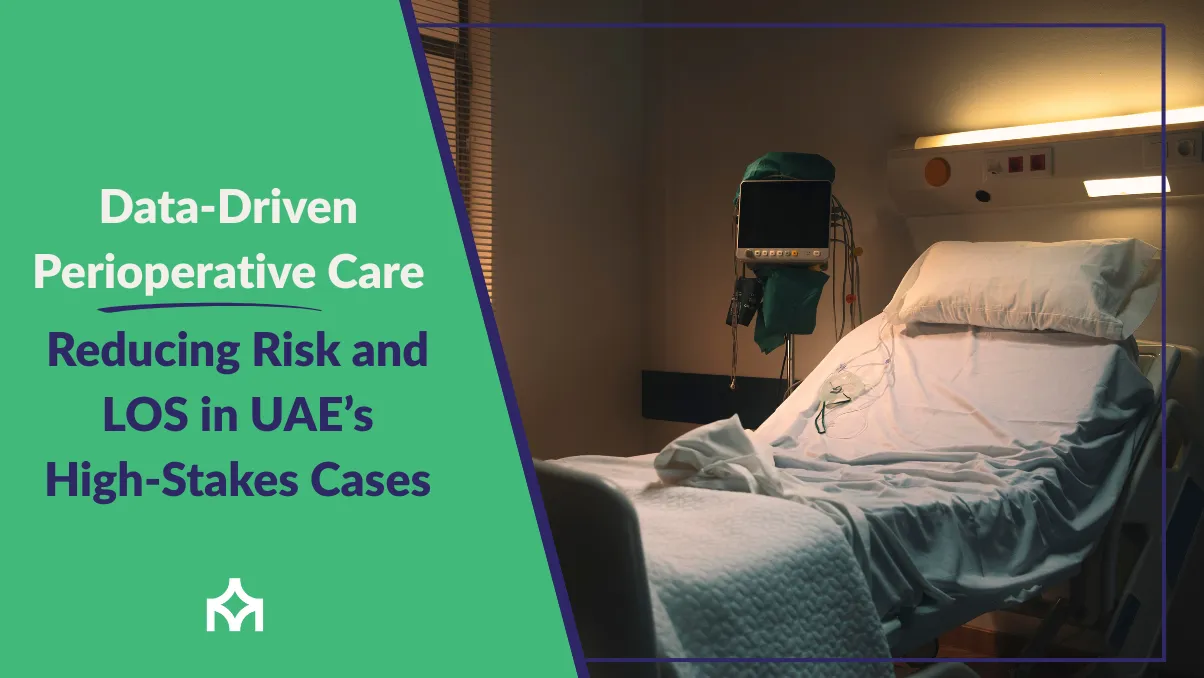The UAE’s healthcare system is undergoing a powerful shift from reactive care models to intelligent, data-driven ecosystems. At the center of this evolution is perioperative care, particularly in high-stakes cases such as cardiac surgery, oncology, organ transplants, and complex orthopedic procedures.
As the nation cements its place as a global health hub, reducing surgical risk and length of stay (LOS) has become both a clinical and financial imperative. With hospitals adopting AI, predictive analytics, and real-time monitoring, perioperative care is no longer a back-end process; it’s a frontline strategy.
The Cost of Complexity: Why LOS Still Matters
In complex surgical cases, even a few extra days of hospitalization can escalate risks and costs significantly:
- Surgical complications increase LOS by 5–7 days, costing providers up to AED 30,000 per episode
- In Dubai’s public hospitals, 60–70% of ICU overutilization is tied to perioperative complications (Dubai Health Authority, 2023)
- Globally, reducing LOS by even one day can save $1,500–$2,500 per patient (OECD Healthcare Efficiency Report)
From Reactive to Predictive: The Future of Surgical Care
Modern perioperative care is no longer about static checklists or post-op rounds. It's about anticipating complications before they happen using:
- Risk stratification models to identify vulnerable patients before surgery
- Real-time monitoring via wearables and IoT to detect deterioration early
- Personalized recovery pathways tailored to patient genetics, comorbidities, and recovery profiles
- Integrated dashboards that unify data from EHRs, labs, ICU, and anesthesia to create a 360° view
This shift can reduce LOS by 15–30% in elective surgeries and lower readmissions by up to 12% (Deloitte, 2024).
Why the UAE Is Uniquely Positioned
The UAE’s bold vision for digital health, AI integration, and smart hospitals is well underway. The Ministry of Health aims to integrate AI into 50% of hospitals by 2030. But having the tech isn’t enough; operationalizing data across perioperative care is where transformation truly happens.
Here’s the gap:
Many hospitals collect surgical data. Few connect it meaningfully across the full continuum, from pre-op assessment to post-op discharge. This disconnect leads to delayed interventions, preventable complications, and missed efficiency gains.
How MGA Helps UAE Hospitals Lead the Way
At Modality Global Advisors, we specialize in perioperative transformation powered by data, AI, and clinical insights. We can help UAE health systems bridge the gap between surgical care and digital intelligence.
Our value includes:
Predictive Risk Modeling
We stratify patients by surgical complexity, comorbidities, and expected recovery, empowering clinicians to act before complications arise.
Integrated Data Dashboards
Our dashboards bring together anesthesia, surgical, ICU, and lab data, giving clinicians and administrators a real-time view of the perioperative landscape.
LOS & ICU Optimization
We redesign care pathways and introduce early warning tools that shorten LOS, reduce ICU dependency, and safely accelerate recovery.
Financial Impact Measurement
MGA aligns clinical innovation with ROI tracking so hospitals not only improve care but also clearly measure financial gains from efficiency.
The Future Is Data-Driven—Are You Ready?
With rising surgical complexity and global competition, data-driven perioperative care is no longer optional, it’s essential. Hospitals that master this approach will:
- Lower mortality and complication rates
- Improve throughput and bed turnover
- Cut costs while elevating patient outcomes
Whether you're upgrading your OR strategy, reducing LOS, or scaling smart hospital capabilities, MGA can help you build the next generation of surgical intelligence—right here in the UAE.
Let’s Connect.
Ready to transform your perioperative outcomes? Reach out to Modality Global Advisors for customized, data-first solutions that reduce risk, improve recovery, and protect your bottom line.
Sources: DHA, Deloitte, OECD Healthcare Efficiency Report

